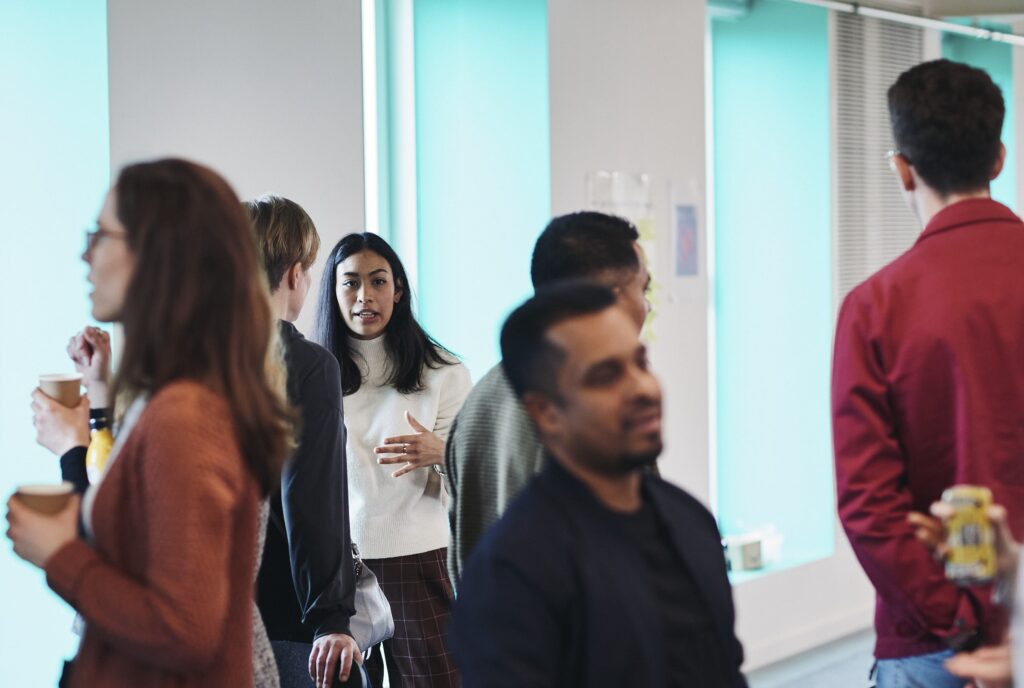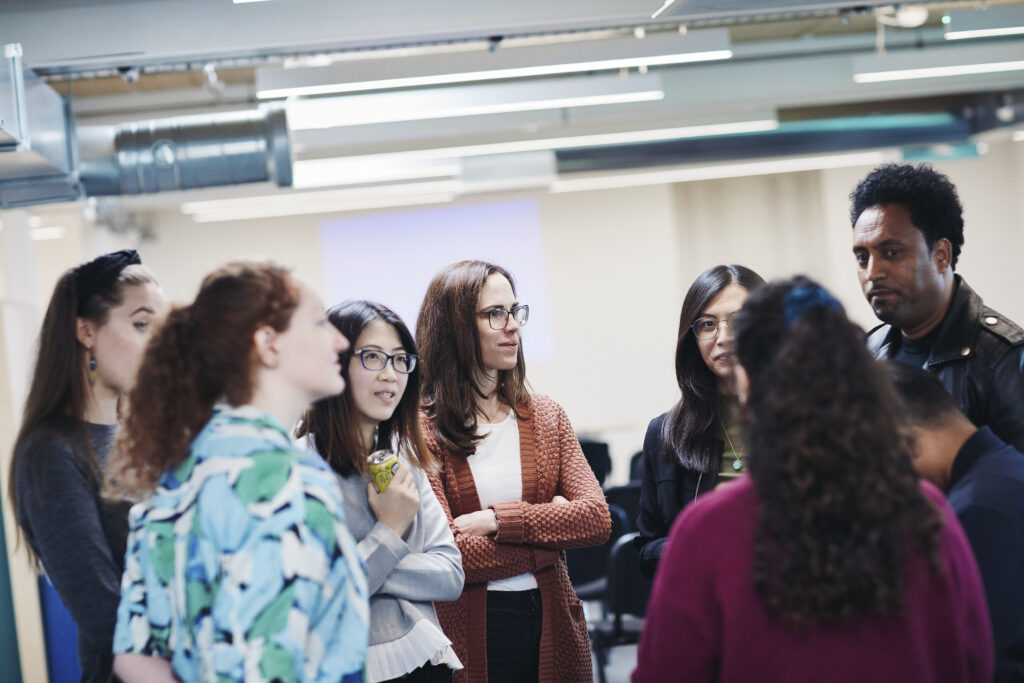How We’re Navigating Systems Change
Renaisi’s multi-skilled team got together to share perspectives on our hypothesis for systems change and how we can use it to push towards change in our work. Sarah Rojvithee, a Researcher in our Place and Systems Team, reflects on how it went.

Renaisi launched an enquiry into what it takes to change a system in April this year. Since then, we have supported clients such as the Children’s Society, Youth Futures Foundation and Smallwood Trust to explore how they are navigating systems and enabling change.
Renaisi combines social sector consultancy, frontline delivery and in-depth support for place-based and systems change. This combination is stronger than the sum of its parts because we’re constantly learning from the different perspectives we see from working directly with communities, providers of services, and institutions that invest in communities.
One way we do this is by bringing our colleagues together for learning sessions every six weeks. Teams bring a knotty question, challenge, or new insight to work through collectively.
Recently I shared the hypothesis for our Systems Inquiry. We hypothesise that to drive systemic change we must understand the system and our role within it, engage in deep and active collaboration, and change what is valued and accepted.
Together we reflected on how these things affect our work and how they could lead to systems change.

Understanding the system and our role within it
Each of us interrogated our roles within the system, how our positions as researchers, advisors, or facilitators influence power dynamics. Being aware of power supports us to think about how our we can use our positions to amplify marginalised voices, as well as to make recommendations for how to share power more equitably.
Our frontline staff shared that the traditional system of employment service delivery puts emphasis on placing clients into entry level jobs, which can perpetuate in-work poverty and clients’ low expectations of what they can achieve.
We are a part of that system. Out of necessity we support and encourage participants to “compete in the rat race” while simultaneously working to empower people to understand their strengths, their rights, and the support they are entitled to.
But alongside this we are also working to challenge bias in the recruitment and employment system, and designing new, emphatically person-centred services.
Deep and active collaboration
Many journeys into systems thinking start with a desire to collaborate more effectively. We observed that the disconnect between the desired change and what is upheld by the status quo is where the barriers and the learning lies.
In our place-based learning partnerships, such as with the Wick Award in Hackney, the Winch in Camden, and Grapevine in Coventry we see change that is shifting power by embracing community and peer-led approaches. These are approaches where lived experience expertise is genuinely valued and centred in the design and delivery.
As a team, we feel that deep and active collaboration is about taking time and taking care:
- Taking the time to share stories about our experiences of an issue and what we have in common, alongside asking thought provoking questions and engaging with the answers.
- Taking care to make adjustments that meet people’s needs, providing a safe space for discussion without judgement and taking the time to understand how people’s backgrounds and cultures shape their worldview, and how yours shape you.
Change what is valued and accepted
Involving people with lived experience and bringing in local forms and sources of knowledge is critical to place-based collaboration and central to changing a system. Valuing it means effectively resourcing it – by compensating people for their time and expertise, investing in training and carving out time for inclusive participatory design spaces from the onset.
Clients tell us it is tough to convince funders to do this in the current climate. But it’s even harder trying to change the system when core stakeholders in that change are not valued.
True collaboration takes time. Time for communication and conversation, thinking and reflecting, co-production and participation. Attempts at systemic change often fail because these aspects are considered expensive add-ons, rather than being integral to the process.
We’re pushing things forward
This cross organisational learning session was led by the Place and Systems team to help us progress our strategy to challenge the root causes of social and economic exclusion in the UK.
We do cross-organisational learning sessions to embody the person-centred, collaborative approach we believe will lead to sustained social change. The Place and Systems team are also:
- supporting our social impact consultancy to embed systemic thinking into their work with funders, charities and social enterprises;
- working with our frontline team to design new approaches and services that respond to the systemic barriers faced by individuals, and deliver lasting change;
- working with organisations and networks to explore how they can change a system, often within a place.
If you’d like to learn more about how we are approaching any of the above, or chat through what it would take to change the system you work in, please get in touch.

- Contact me
- Contact Sarah Rojvithee on:
- 020 7033 2649
- s.rojvithee@renaisi.com




